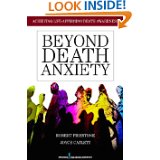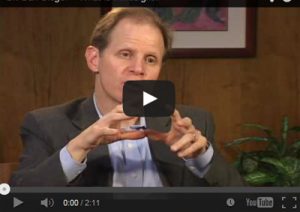Forgiveness: 9 Steps to Break Free
 At different points in our lives, many of us hold grudges against other people who we feel have hurt or offended us in some way or another. We can hold grudges for people who aren’t even alive anymore. We often hold onto grudges with the false notion that we are making the other person suffer by being hurt and angry with them.
At different points in our lives, many of us hold grudges against other people who we feel have hurt or offended us in some way or another. We can hold grudges for people who aren’t even alive anymore. We often hold onto grudges with the false notion that we are making the other person suffer by being hurt and angry with them.
Now, there is nothing wrong with being angry with someone, but it is how we express this anger that makes all the difference for us and our relationships. What is a grudge anyway? It is harboring ill feelings toward another person and the need to settle a score.
Let’s try a little experiment.
- Think of someone in your life right now who you are absolutely holding a grudge against (Note: Very important not to choose someone right now who represents an extreme person / grudge). This is a person that you’re currently not willing to forgive right now for their actions.
- Picture that person and hold onto that unwillingness to forgive.
- Now, just observe what emotions are there: anger, resentment, sadness? Also notice how you are holding your body right now; is it tense anywhere or feeling heavy? Then bring awareness to your thoughts; are they hateful or spiteful thoughts?
Most people find this to be an uncomfortable experiment that elicits feelings of tension, anger, and thoughts of ill will toward the other person. These feelings aren’t being conjured out of nowhere; it’s just bringing to light what is already within and stirring it around. There is a common misconception that forgiveness means condoning the act of the other person. Forgiveness simply means releasing this cycle of torture that continues to reside inside.
Forgiving does not mean forgetting or condoning the person’s action! Forgiveness is for the person who was wronged, not the perpetrator. It is saying, “I have already been offended against, I am going to let go of this so I don’t continue to be burdened by it.“
In a chapter titled “Give Up All Hope for a Better Past” in The Now Effect I ask you to consider in this process, who is really suffering here? The practice of forgiveness has been shown to reduce stress, anger, and depression and support many aspects of well-being and happiness. Like many things, it is easier said than done and may depend on the person and level of offense.
In that vein, it’s important to ask ourselves, “Am I ready to forgive? Am I ready to let go of this burden?” If the answer is no, then that is okay, perhaps right now is not the time. It’s important to be authentic with ourselves and honor where we are in this process. If the answer is yes, then consider these nine steps that my good friend Fred Luskin, PhD writes about in his book Forgive for Good:
- Know exactly how you feel about what happened and be able to articulate what about the situation is not OK. Then, tell a trusted couple of people about your experience.
- Make a commitment to yourself to do what you have to do to feel better. Forgiveness is for you and not for anyone else.
- Forgiveness does not necessarily mean reconciliation with the person that hurt you, or condoning of their action. What you are after is to find peace. Forgiveness can be defined as the “peace and understanding that come from blaming that which has hurt you less, taking the life experience less personally, and changing your grievance story.”
- Get the right perspective on what is happening. Recognize that your primary distress is coming from the hurt feelings, thoughts and physical upset you are suffering now, not what offended you or hurt you two minutes – or ten years -ago. Forgiveness helps to heal those hurt feelings.
- At the moment you feel upset practice a simple stress management technique to soothe your body’s flight or fight response.
- Give up expecting things from other people, or your life, that they do not choose to give you. Recognize the “unenforceable rules” you have for your health or how you or other people must behave. Remind yourself that you can hope for health, love, peace and prosperity and work hard to get them.
- Put your energy into looking for another way to get your positive goals met than through the experience that has hurt you. Instead of mentally replaying your hurt seek out new ways to get what you want.
- Remember that a life well lived is your best revenge. Instead of focusing on your wounded feelings, and thereby giving the person who caused you pain power over you, learn to look for the love, beauty and kindness around you. Forgiveness is about personal power.
- Amend your grievance story to remind you of the heroic choice to forgive.
The fact is, forgiveness isn’t easy, and you’re not going to be perfect at it, so remember to forgive yourself for that as you go.
As always please share your thoughts and questions below. Your interaction here provides a living wisdom for us all to benefit from.
Adapted from Mindfulness and Psychotherapy








